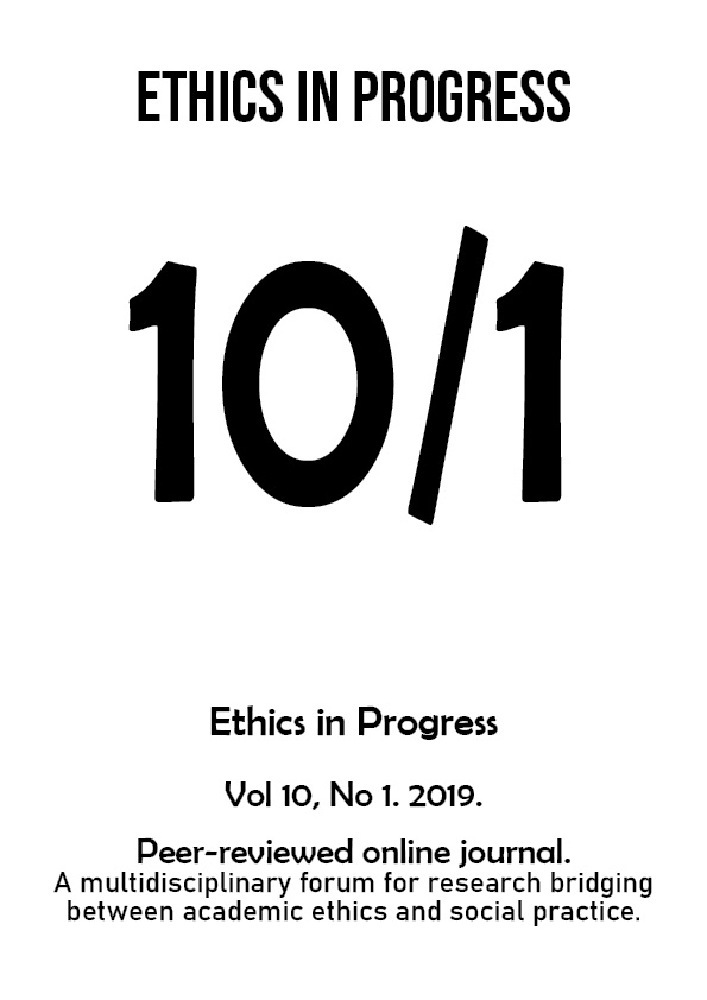Abstract
The current condition of philosophy as a discipline is quite problematic, in particular if we consider its relationship to other human sciences and to other disciplines in general. The philosophical debate appears fragmented, and philosophy itself has lost any specific role in the present scientific landscape. This situation determines a sort of “identity crisis”, whose main consequence is the coexistence of antinomical views about philosophy in the contemporary scientific and public discourse. Starting from this context, the paper aims at providing a description of philosophy as “theory of mediation”. This description does not want to be ‘original’, but rather tries to emphasize an element that is always been rooted in the very essence of philosophy, but that has also often been neglected. Philosophy has always pointed out the necessity to think the in-between of things, their relation and the passage from one to another, rather than just offering a taxonomy or a factual description of the world. In order to prove this point, the paper offers an analysis of some classical texts, in particular of some fragments by Heraclitus and of a passage taken from Hegel’s early writings. A view that rethinks philosophy as “mediology” allows a rehabilitation of philosophy as a specific discipline and as a systematic enterprise, at the same time providing a new framework for the understanding of the relationship between philosophy and other sciences.
References
Badiou A. 2008. Manifesto per la filosofia (with two prefaces for the Italian public). Naples: Cronopio.
Blumenberg H. 2015, The Laughter of the Thracian Woman. A Protohistory of Theory. London: Bloomsbury.
Caputo J. D. 1987. Radical Hermeneutics. Indianapolis: Indiana University Press.
Debray R. 1999. Media Manifestos. On the Technological Transmission of Cultural Forms. London: Verso.
Foucault M. 1989. The Order of Things. London – New York: Routledge.
Friedland J. 2012. “Philosophy Is Not a Science”, https://opinionator.blogs.nytimes.com/2012/04/05/philosophy-is-not-a-science/ (last visited 31.10.2018).
Groys B. 2012. Introduction to Antiphilosophy. London: Verso.
Hàjek A. 2014. “Philosophical Heuristics and Philosophical Creativity”, in S. P. Elliott & B. K. Scott (Eds.), The Philosophy of Creativity: New Essays. Oxford: Oxford University Press.
Hassan R. & Sutherland Th. 2016. The Philosophy of Media. London: Routledge.
Hegel G. W. F. 1970. Werke in 20 Bänden. Frankfurt am Main: Suhrkamp.
Heller-Roazen D. 2009. The Enemy of All. Piracy and the Law of Nations. New York: Zone Books.
Huenemanniac Ch. 2014. “Where Academic Philosophy Went Wrong.” https://huenemanniac.com/2014/08/19/where-academic-philosophy-went-wrong/ (accessed on October 31, 2018).
Konitzer W. 2006. Medienphilosophie. München: Fink.
Leidlmar K. 1999. “From the Philosophy of Technology to a Theory of Media.” Philosophy and Technology 4(3):271-280.
Lucci A. 2018. “La filosofia si sporca le mani.” https://www.doppiozero.com/materiali/la-filosofia-si-sporca-le-mani (accessec on October 31, 2018).
Marconi D. 2014. Il mestiere di pensare. Torino: Einaudi.
Margreiter R. 2007. Medienphilosophie. Eine Einführung. Berlin: Parerga.
McLuhan M. 1964. Understanding Media. The Extension of Man. New York: McGraw-Hill.
Mersch D. 2003. “Technikapriori und Begründungsdefizit. Medienphilosophie zwischen uneingelöstem Anspruch und theoretischer Neufundierung.” Philosophische Rundschau 50(3):193-219.
Pigliucci M. 2014. “Neil deGrasse Tyson and the Value of Philosophy.” https://scientiasalon.wordpress.com/2014/05/12/neil-degrasse-tyson-and-the-value-of-philosophy/ (accessed on October 31, 2018).
Sommer U. A. 2012a. “Philosophie als Wagnis.“ Nietzsche-Forschung 20(1):19-28.
Sommer U. A. 2012b. Lexikon der imaginären philosophischen Werke. Berlin: Die Andere Bibliothek.
Wittgenstein L. 2009. Philosophical Investigations. London: Wiley-Blackwell.





